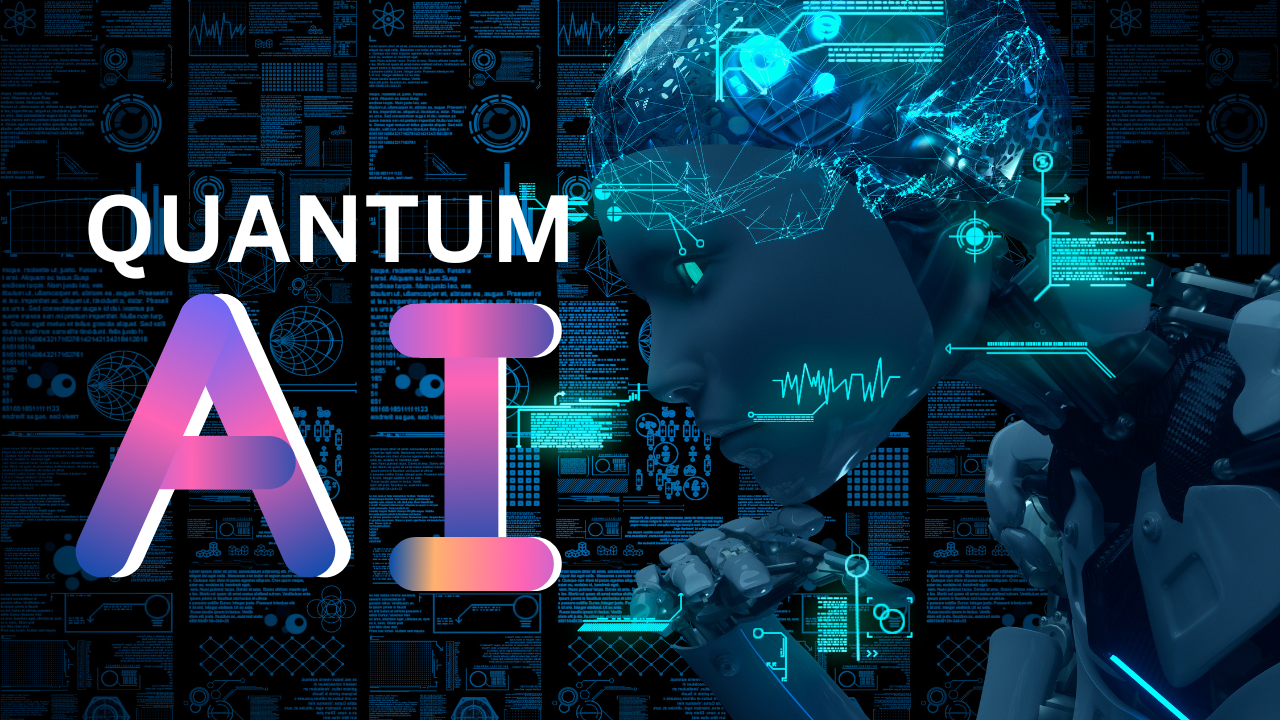Quantum AI is an exciting and evolving field with the potential to transform the way we approach complex problem solving in Artificial Intelligence. On going research and Development are focused on Improving the stability of quantum hardware and discovering new quantum algorithms for practical AI applications.
Quantum AI refers to the intersection of quantum computing and artificial Intelligence (AI). Quantum computing leverages the principles of quantum mechanics to process information in ways that classical computers cannot when applied to AI, Quantum computing has the potential to revolutionize certain aspects of machine learning and optimization problems.
Key Aspects of Quantum AI:
Quantum Computing for Machine Learning: Quantum computers can perform complex calculations exponentially faster than classical computers in some specific instances, This speed up is particularly relevant for certain machine learning algorithms, such as Quantum enhanced optimization, quantum machine learning algorithms, and quantum neural networks.
Quantum Neural Networks: Quantum neural networks, inspired by classical artificial neural networks , utilize quantum bits (qubits) and quantum gates for processing information. These quantum neural networks aim to solve specific problems more efficiently than classical neural networks.
Quantum Optimization: Quantum computers are particularly promising for optimization problems, which are prevalent in A.I Quantum Algorithms, such as the Quantum Approximate Optimization Algorithm (QAOA), these are designed to find optimal solutions for certain combinational optimization problems.
It is important to note that quantum computing and Quantum AI are still in the early stages of development. Advances in this field have the potential to bring about significant breakthroughs in solving complex problems that are currently computationally infeasible for classical computers.





buying clomid no prescription how can i get cheap clomiphene no prescription generic clomiphene pill can i buy generic clomid order generic clomid without insurance cheap clomiphene prices get clomiphene for sale
Thanks recompense sharing. It’s acme quality.
More articles like this would make the blogosphere richer.
purchase zithromax pills – ciprofloxacin us flagyl price
rybelsus cost – order periactin 4mg pill buy periactin sale
purchase domperidone without prescription – domperidone 10mg for sale order generic flexeril 15mg
propranolol price – brand methotrexate 5mg buy methotrexate without a prescription
brand amoxicillin – where to buy diovan without a prescription buy generic ipratropium for sale
azithromycin over the counter – buy bystolic pills for sale cost bystolic 5mg
purchase amoxiclav online – https://atbioinfo.com/ how to get acillin without a prescription
nexium generic – anexamate esomeprazole tablet
buy generic medex for sale – coumamide cheap cozaar 50mg
mobic 7.5mg usa – https://moboxsin.com/ buy meloxicam medication
deltasone online order – https://apreplson.com/ prednisone oral
erection pills online – https://fastedtotake.com/ buy ed pills sale
buy amoxicillin – comba moxi amoxil price
fluconazole 200mg ca – buy fluconazole 200mg sale purchase fluconazole pill
lexapro 20mg without prescription – https://escitapro.com/# buy escitalopram 10mg generic
buy cenforce 50mg sale – fast cenforce rs order cenforce 50mg without prescription
cheap canadian cialis – https://ciltadgn.com/ cialis daily review
cialis 5mg price comparison – https://strongtadafl.com/ cialis by mail
ranitidine 150mg pills – https://aranitidine.com/ buy cheap generic zantac
viagra half pill – click viagra sale durban
This is a theme which is virtually to my heart… Many thanks! Quite where can I upon the contact details due to the fact that questions? https://buyfastonl.com/azithromycin.html
The vividness in this piece is exceptional. on this site
Good blog you be undergoing here.. It’s hard to on elevated calibre writing like yours these days. I justifiably respect individuals like you! Withstand care!! https://ursxdol.com/ventolin-albuterol/
I’ll certainly bring back to skim more. https://prohnrg.com/
Facts blog you possess here.. It’s severely to assign great status belles-lettres like yours these days. I justifiably comprehend individuals like you! Rent care!! levitra gГ©nГ©rique prix
Facts blog you procure here.. It’s hard to on elevated calibre writing like yours these days. I honestly appreciate individuals like you! Rent vigilance!! https://ondactone.com/simvastatin/
This is the kind of delivery I find helpful.
buy clopidogrel generic
This is the big-hearted of literature I rightly appreciate. http://www.gtcm.info/home.php?mod=space&uid=1158229
buy forxiga 10mg for sale – https://janozin.com/# buy forxiga
xenical order – https://asacostat.com/# xenical generic
I’ll certainly bring back to review more. https://www.forum-joyingauto.com/member.php?action=profile&uid=49483
You can shelter yourself and your dearest by way of being cautious when buying panacea online. Some pharmaceutics websites manipulate legally and provide convenience, privacy, sell for savings and safeguards for purchasing medicines. buy in TerbinaPharmacy https://terbinafines.com/product/elavil.html elavil
The depth in this piece is exceptional. TerbinaPharmacy
Palatable blog you have here.. It’s intricate to assign strong status belles-lettres like yours these days. I truly respect individuals like you! Rent care!!
Yo, xocdia88henra! Heard some buzz about it. Gave it a spin, and it’s actually pretty fun once you get the hang of it. If you’re into that xoc dia vibe, this is probably up your alley. Give it a shot: xocdia88henra
Just tried 13win21. Had some decent fun. Could use a few tweaks, but overall it’s a pretty solid choice if you are bored. Definitely worth looking at: 13win21
Ssbetlogin? Yo, that’s my go-to when I’m feeling lucky. Easy to navigate, and haven’t had any issues cashing out. Thumbs up from me! Check it out: ssbetlogin
Decided to give bet169 a try, and honestly, I’m digging it. The platform is easy to use, and they have a good range of betting markets. The customer support was also pretty responsive when I had a question. Check out bet169 and see for yourself!
mgm bet 10 get 200 https://betmgm-play.com/ va betmgm